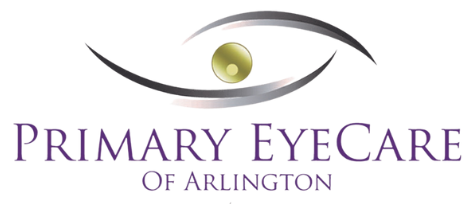Pediatric Eye Exams
Children can have eye health and vision problems without you realizing. A pediatric eye exam helps identify concerns early, allowing your child to receive the right care before issues progress.
Our experienced pediatric eye doctors in Arlington and South Main offer personalized care for kids of all ages. Our optometrists have extensive experience in caring for children’s eyes and can accurately identify and manage a wide range of pediatric vision and eye health concerns.
When should children get a pediatric eye exam?
Children should have their first eye exam at around six months, then again between three and five years old, and once more before first grade.¹
Once a child is in school, they should have a comprehensive eye exam at least once every year or as recommended by their optometrist.¹
What to expect during a kid’s eye exam
The specific tests may vary by age and risk factors, but every pediatric eye exam includes:
-
Reviewing your child’s eye health and medical history
-
Testing visual clarity at distance and up close
-
Checking eye alignment and how the eyes work together
-
Evaluating eye health
-
Determining whether glasses are needed and prescribing them when appropriate
- Assessing the need for myopia management to help slow the progression of nearsightedness
Why are eye exams important for children?
- Excellent vision for up close and far away
- Proper eye teaming, allowing both eyes to work together and focus on the same point
- The ability to smoothly shift focus between near and far objects
- Strong eye movement skills, such as tracking across a line of text while reading
What are the signs of vision problems in children?
Kids often can’t clearly explain when they’re having trouble seeing, so it can be challenging to spot vision problems early on. If left untreated, these issues can affect your child’s development and daily life. Watch for these early signs of vision problems:
- Frequent blinking, squinting, or irregular eye movements
- Frequently turning or tilting their head
- Covering or closing one eye to see better
- Poor hand-eye coordination or motor skills
- Rubbing their eyes frequently
- Frequent headaches
- Leaning in too close to see something or read
- Learning difficulties and poor handwriting
If you observe these behaviors, they may indicate that your child has a vision or eye health problem. Please schedule an appointment for a pediatric eye exam in Arlington or South Main so our eye doctor can identify the cause and recommend treatment. Delaying care may cause your child more serious or even permanent damage, depending on the condition.
Comprehensive pediatric eye exams at Primary Eye Care
Pediatric eye exams at Primary Eye Care of Arlington and South Main detect eye defects and vision impairment while also assessing your child’s risk for developing eye conditions later in life. Our exams are more thorough than those offered at the pediatrician’s office or schools, which screen for potential vision problems but do not diagnose or treat them.
Don’t wait until a vision problem is noticeable! Get your child’s eyes checked regularly by an optometrist. Schedule your child’s eye exam in Arlington or Memphis today.
References:
1. Comprehensive eye exams. aoa.org
2. UCLA study: impact analysis of Vision to Learn. visiontolearn.org
Can my child wear contact lenses during sports activities?
Yes. We love one day disposable lenses for these situations.
When should my child's eyes be examined?
Children’s vision is developed at six months of age. There are programs (InfantSEE) that help to assess that everything is normal for future development. If all is normal with that examination, the next exam should be at age four.
Will sitting too close to the television set hurt my child's eyes?
Most of the time children sit close to the TV to tune everything else out. It is good to have a good distance between the object we are viewing and our eyes to ensure we are not putting undue stress on our focusing system.
Is my child likely to inherit my need for glasses?
Yes. And likely sooner. We are seeing more kids that are younger with higher prescriptions than their parents had when they were in glasses. The good news is that there are methods to slow this progression down. Talk to your doctor about Myopia Control to help with slowing down progression.
